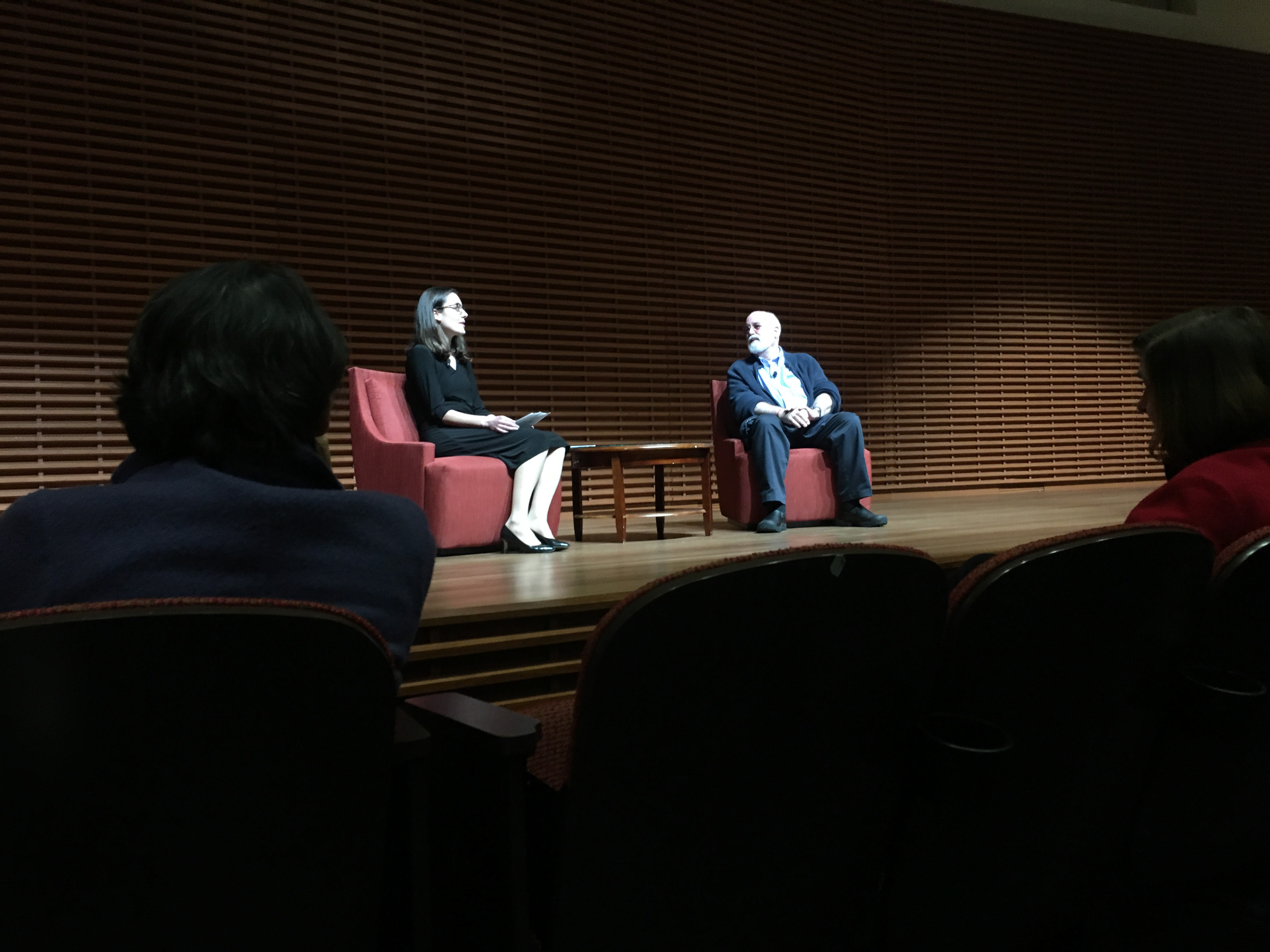Father Greg Boyle — a Jesuit priest and the founder of Homeboy Industries, the world’s largest gang intervention, rehabilitation and re-entry program — spoke to a crowd in CEMEX Auditorium on Thursday night. His talk focused on his experiences working with former gang members, his own spiritual reflections and his broader philosophy of social justice.
In 1988 Boyle founded “Jobs for a Future,” a program which later became Homeboy Industries: a 501(c)3 nonprofit that “provides hope, training and support to formerly gang-involved and previously incarcerated men and women,” according to its website.
The organization works with over 10,000 former gang members every year in Los Angeles, the city that many have termed the gang homicide capital of the world. Today, there are over 150 organizations in the global Homeboy Network.
The main theme of Boyle’s talk was the role of interconnectedness and radical kinship in social justice efforts.
“How do we imagine a circle of compassion, and then together make sure that no one is outside that circle?” he asked. “How do we choose together to dismantle the barriers that exclude? The only way to do that is wordlessly, as we go out to the margins and then realize the margins are disappearing.”
During the course of his work with gang members, Boyle has presided over 227 funerals of individuals killed by gang violence. An audience member asked how he maintains his optimism in the face of such violence and tragedy.
“Death’s a punk,” Boyle replied, quoting a former gang member. “You want to put things in their place. Then they have no power. Death isn’t the worst thing that can happen to you. You have to compile two lists: the list of fates worse than death and the things more powerful than death.”
Boyle criticized officials who say they will address problems like gang violence head-on.
“Everything is about something else,” he explained. “If you want to address gang violence head-on, address the lethal absence of hope. Address health. Address how we belong to each other, and see what happens.”
Boyle credits the success of Homeboy Industries with his focus on tenderness.
“Tenderness is the most disarming thing to the homies,” he said. “They know everything else. They know ‘in-your-face;’ they know ‘grab you by the lapels.’ They know all that stuff. The thing that’s so disarming is tenderness. And it’s hard to be tender. I’ll be honest with you.”
He advised Stanford students to go out to the margins in their own lives.
“Where are the margins?” he prompted the audience. “It may not be by the fountain, but it might be; it may not be under the palm tree, but it could be,” he said, referring to the Stanford campus. “It’s all about connection. It’s all about tenderness. Because if love stays in your head and your heart, nothing becomes tender — there’s nothing connected.”
Contact Sophie Regan at sregan20 ‘at’ stanford.edu.
